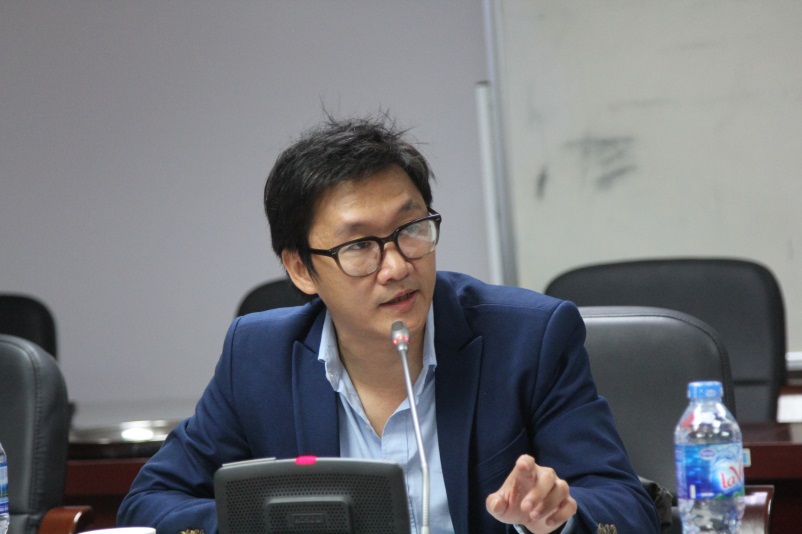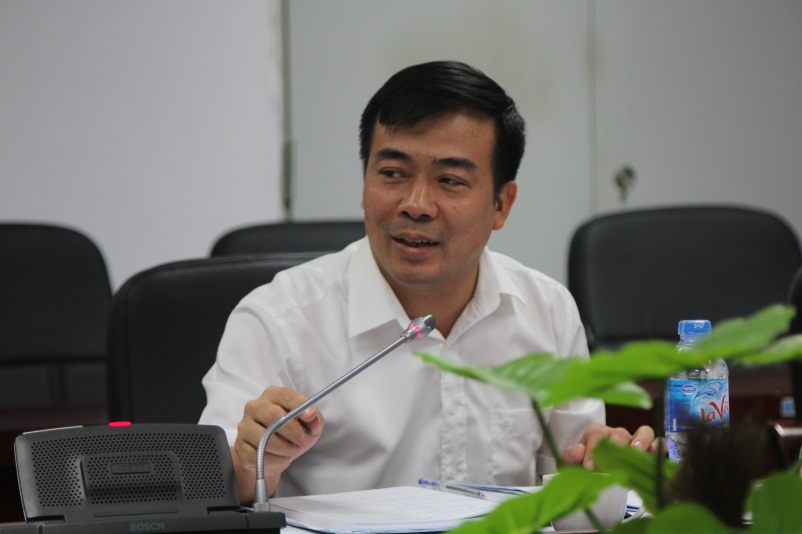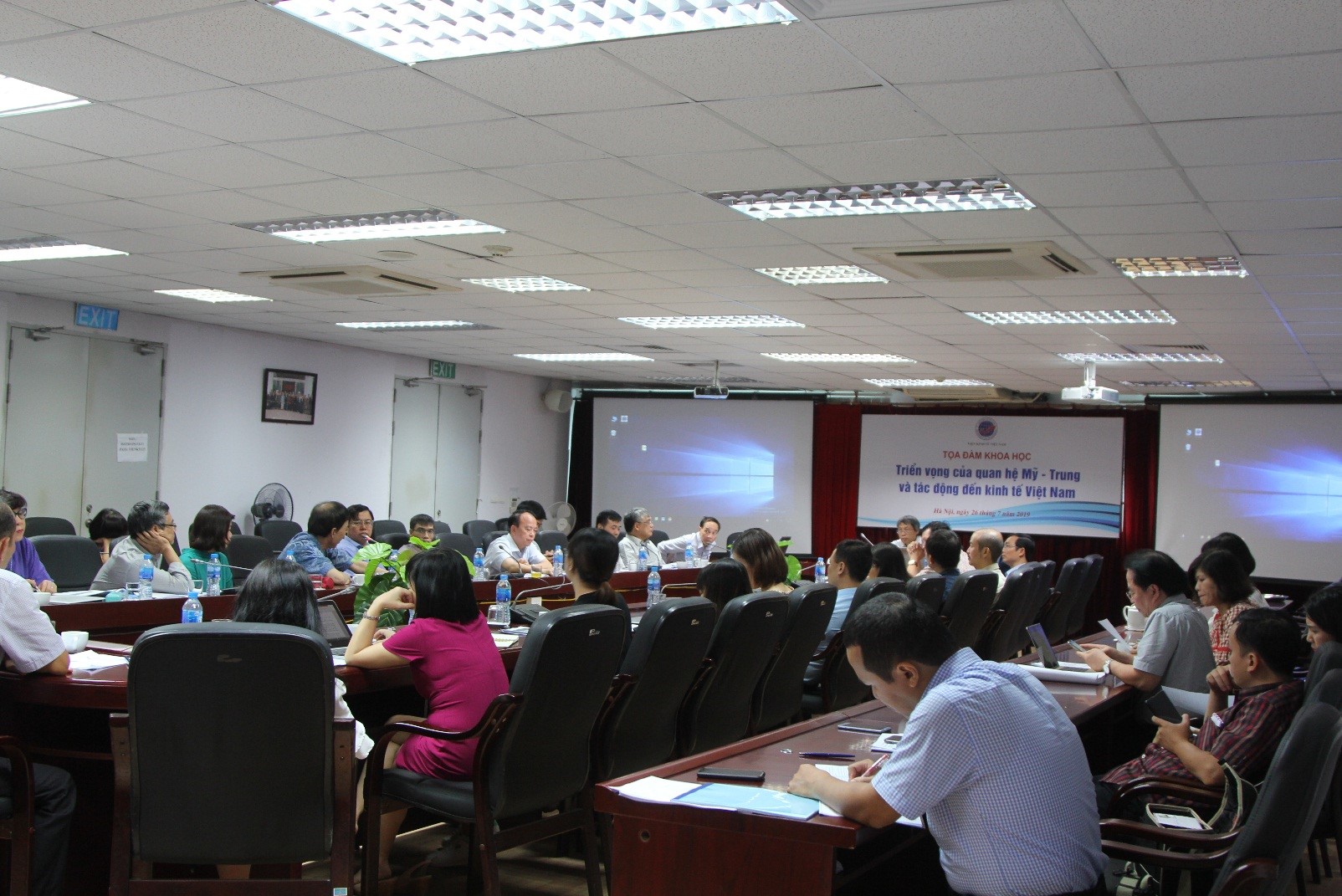In the speech at the seminar, Assoc.Prof.Dr. Bui Quang Tuan, Director of the Vietnam Institute of Economics emphasized the importance of the Seminar topic in consultation and proposed policy implications for Vietnam's development and economy. He hoped that with the participation of many scholars who have been conducting research directly related to the US-China, the issues of relationship and prospects of cooperation between the two countries would be clarified under approaching dimensions and scientific perspective.
The seminar heard the discussions about US-China Strategic Competition; US-China relations; US-China trade war; The impact of US-China trade war on the world and Vietnam economy.
Identify issues raised in US-China relations and policy implications for Vietnam, PhD. Nguyen Xuan Cuong, director of the Institute of Chinese Studies, said that the US-China trade war would also make the global economy become gloomy and could spark a global trade war. The impose import tariff issue and a global trade war would create a shock and could cause the world GDP growth to drop by 1% to 3% in the next few years. This war would also put pressure on the export of many countries to the Chinese market. The tariff increase would push the prices of Chinese products higher, causing sales of these products in the US and one of the world's major markets to decline; Since then, the negative impact on the economies of emerging countries which provide inputs for Chinese producers, including ASEAN countries (such as Vietnam).
Statistics showed that China and the US accounted for more than one third (33.95) of Vietnam's total trade turnover. This trade war between two economic great powers would inevitably affect Vietnam's trade and economy, including opportunities and challenges. It is imperative that Vietnam's economic policies in the coming time be flexible to be ready to respond to new developments in this war and changes in the international situation to increasing the resistance of the macroeconomy to external shocks as well as promoting the development of Vietnam's private sector in the global value chain.
 |
 |
Assoc.Prof.Dr. Cu Chi Loi, Director of the Institute for Americas Studies, said that the US goal is aiming to overcome trade imbalance, restore manufacturing industry, prevent the competition of China in some high-tech industries. Besides, the United States also curbed China's development both economically and militarily; At the same time, towards a trade agreement that benefits the US in accessing markets and reducing competition pressure. In order to achieve this goal, the US measures are to impose high tariffs on Chinese goods, prevent exporting high-tech products to China (specifically targeting some of China's leading companies such as Huawei) and hinder Chinese enterprises from accessing high technology.
Assessing the impact of US-China trade war on the world and Vietnam economy, Dr. Nguyen Binh Giang (Deputy Director, Institute of World Economics and Politics) said that this war has affected global trade (reducing US exports to China, reducing global trade growth to 2,1% (2019) while 2018 reached 3.9% and in 2017 reached 5.5%). This was the lowest growth rate in the past decade; the explosion of bilateral trade disputes is a prerequisite for changing global trade laws); Impact on global finance (CNY devaluation, USD appreciation, a series of other currencies devalued due to many factors including trade and monetary policy response, international capital escape phenomenon; the stock market fluctuated strongly; Increased risk of the currency war); Influence on global investment (global FDI declined); Influence on global growth (The US, China, and Eurozone attracted global growth but all three have reduced their growth, the most advanced and developing countries have declined); Influence on Vietnam in both positive and negative directions (Vietnam may become an import market for Chinese goods exported to the US which cannot be exported; Vietnam has the opportunity to import US goods that cannot be sold to China at reduced prices; Vietnam has a better chance of FDI when foreign companies implement Chinese strategy + 1)…
 |
According to Dr. Pham Sy Thanh (Director of Chinese Economy Research Programme, Institute for Economic and Policy Research (University of Economics - Vietnam National University, Ha Noi), US-China strategic competition is the factor that helps us to clarify the US strategic view of China including the National Security Strategy (NSS), the Defense Strategy (NDS), the National Defense Authorization Act (NDAA); Clarifying China's perspective on the United States is related to: new great national relations, regional power position, Chinese dream…
The mentioned issues were discussed in depth by the scientists and there were many issues related to the topic of the seminar. Assoc.Prof.Dr. Bui Quang Tuan highly appreciated the discussions and believed that the exchange contributed to supplementing and improving the theoretical system for meaningful policy proposals, contributing practically to the general development of Vietnam's economy in the coming time.
Pham Vinh Ha







